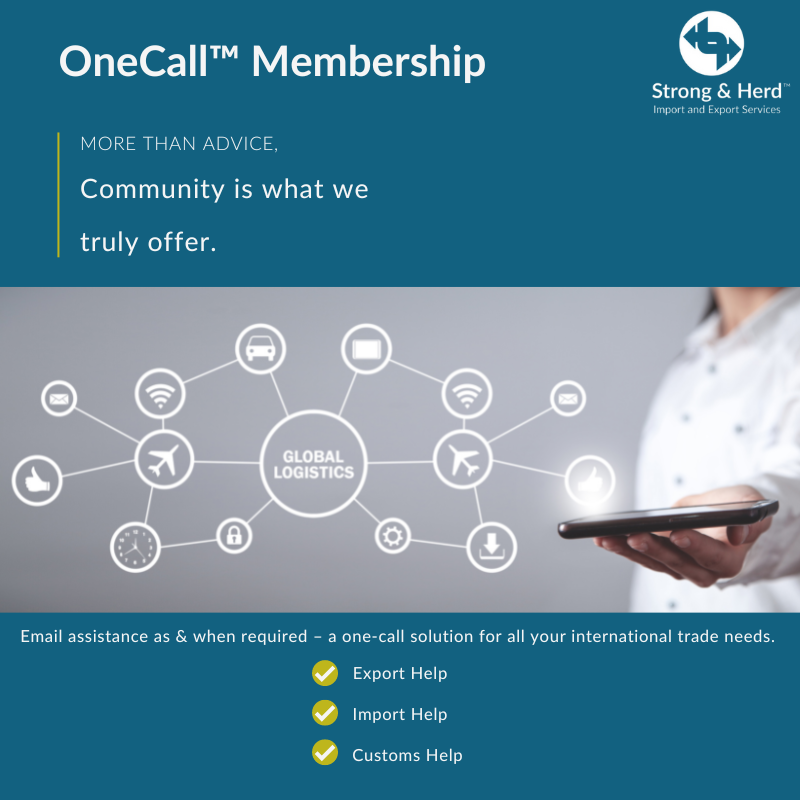
When starting to export or looking to open up new export markets, it is often tempting to let the overseas buyer organise the shipment. To this end, a lot of companies make the mistake of using ExWorks as their delivery term. ExWorks is an official Incoterms® Rule within the 2020 set, but it is often misunderstood and can cause complications to the UK exporter, especially regarding VAT zero-rating the export. Ideally, the exporter should take on a level of responsibility for the export. However, if arranging the international transport and having responsibilities in another country seems too daunting, then Free Carrier (FCA) could be considered.
Firstly, you will have to decide whether you will use FCA Seller’s Premises or FCA Place of Departure (UK). This makes a difference to the exporter's costs as well as obligations. FCA Seller’s Premises is remarkably close to the old favourite ExWorks, but it does mean that the UK seller will have the responsibility to load the collecting vehicle and ensure an export Customs entry is completed, which will enable them to obtain sufficient evidence of export to VAT zero-rate the supply. If the named place is changed to the Place of Departure UK, the seller will arrange for delivery to the port or airport of departure but will not have to arrange off-loading at that place or pay for loading onto the main mode of transport. It is so important to name a place; just using the three letters is insufficient.
Let’s consider one of the FCA terms in two export scenarios – for exporting to the EU and the Middle East. Despite being different markets, what an exporter must do under an FCA term is very similar. The UK seller will be responsible for checking whether an export licence is required, producing export paperwork to be used in the overseas market, and paying for the export Customs declaration to be made. If a fast parcel operator is used, the Customs entry charge is usually built into the transport costs for your customer to pay. The overseas buyer will nominate the logistics company, and the seller will either load the goods at their premises onto the collecting vehicle or deliver them to the logistics company's UK office. The risk of loss or damage passes to the buyer once the goods are in the hands of the logistics company.
What differs is the export paperwork that must be prepared and the UK's trade relationship with the customers’ countries. The UK has a trade agreement with the EU, so when producing the export invoice, you should consider whether you can claim that the goods are of UK Preferential Origin; you can only claim preference if the goods are made in the UK and meet the Product Specific Rules (PSR) as laid out in the Trade Cooperation Agreement (TCA). If in doubt, don’t use the preference statement; wait until you are certain that you understand the trade agreement terms and how they apply to your goods. The only thing using the preference statement will do is reduce any import Customs duty your customer will have to pay at import to zero. Check to see if your goods incur a positive duty rate; if they don’t, then preference isn’t needed. If there is a positive rate of duty, and your customer pays it at import, you can, after investigation, raise the relevant paperwork in the future so your customer can reclaim any duty paid. There are also potential import registrations for goods entering the EU, so even under FCA terms, ensure you do your research. You may only be legally responsible for getting the goods to the named carrier in the UK under FCA terms, but you still don’t want them stuck in Customs at import or rejected because the correct registrations aren’t in place.
The UK does not currently have trade agreements with the Middle East, but many Middle Eastern countries, e.g., UAE, Bahrain, Oman, and Saudi, will request a Certificate of Origin to be raised for the shipment. Obtained via a Chamber of Commerce, it may also have to be legalised by the Arab British Chamber – this will increase your costs. Always check with your Middle Eastern customers if they require a Certificate of Origin, both certified and legalised. Again, ensure you are aware of any required licensing or import registrations, even though under FCA terms, they are not your legal obligation.
As we mentioned briefly above, under both FCA terms, the risk of loss or damage of the goods is the buyer’s once the goods have been delivered into the hands of the first carrier (FCA Seller’s Premises = at your premises / FCA named export place = at the place named). A buyer is not obligated to insure the goods for loss or damage, though they bear the risk, so I recommend checking your transit insurance cover to ensure you can claim even under FCA if the buyer fails to insure.
Finally, it is worth reiterating that VAT zero-rating an export sale is not automatic. As the exporter, you must be able to obtain and maintain adequate official and commercial evidence of export. So, to be able to VAT zero rate the export, you will need to obtain a copy of the export Customs declaration showing that the goods have departed: CDS (Customs Declarations Service) / EOG (Exit Of Goods), and the transport document (if you can’t get this, then proof of delivery – POD). If you are not ready to arrange overseas transport and get involved with delivery to your customers’ countries, then the use of an FCA term means it is clear that you are getting involved with the export and gives you enough control over paperwork to ensure you stay compliant.
For public training, please contact: info@strongandherd.co.uk
While you're here, you may be interested in
- Glossary of Customs and Trade Terms
- S&H Industry Insights
- Live Specialist Clinics
With thanks to Sandra Strong for this month's Spotlight On.

Focus On: Understanding Free Trade Agreements
With the UK developing new independent trade arrangements both to encourage the export and import of goods and services from affiliated markets, this session is a must. Some knowledge of customs regulations is recommended or attendance on courses introducing this topic. This course looks at the structure of new and old UK international trade agreements, the key rules of origin and how to understand the whole agreement covering goods, services and other trade issues.

Understanding Origin & Preference
What is the difference between origin and preferential origin? This interactive workshop explains this by using case studies and exercises to help the learner understand when they are important in both export and import scenarios. It examines the documents and statements used to declare origin and preference and how to verify if your goods meet preference rules across different trade agreements. With HMRC audits increasing, you and the business need to be comfortable with this complex area.

Export Essentials: An Introduction to Exporting
Following on from the Beginners Guide to Exporting / Importing this interactive session covers the key points of exporting goods. It covers essential details about the Incoterms Rules, export documentation and working with freight forwarders to ensure goods are correctly declared. Ideal for anyone whose job has an export connection, whether sales, contracts, finance, shipping or for a managerial overview.
OneCall™ Email assistance as and when required; A one-call solution for all your import, export and customs enquiries. Export help. Import help. Customs help.
Stay informed about customs and international trade matters by subscribing to our OneCall™ service. This comprehensive offering includes a dedicated email helpline for support, timely practical updates direct to your inbox (Did You Know?), monthly UK Customs & Trade Briefings and access to an interactive members' area with an exclusive community for our subscribers.
International Trade Updates & Spotlight Newsletter
Subscribe to our free information emails covering international trade topics...
MORE INDUSTRY INSIGHTS...
Strong & Herd LLP










